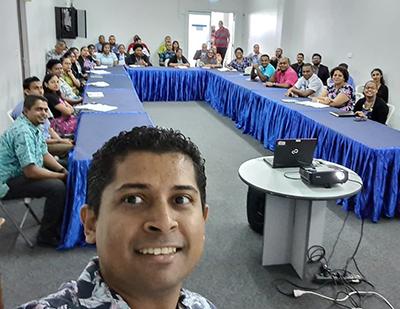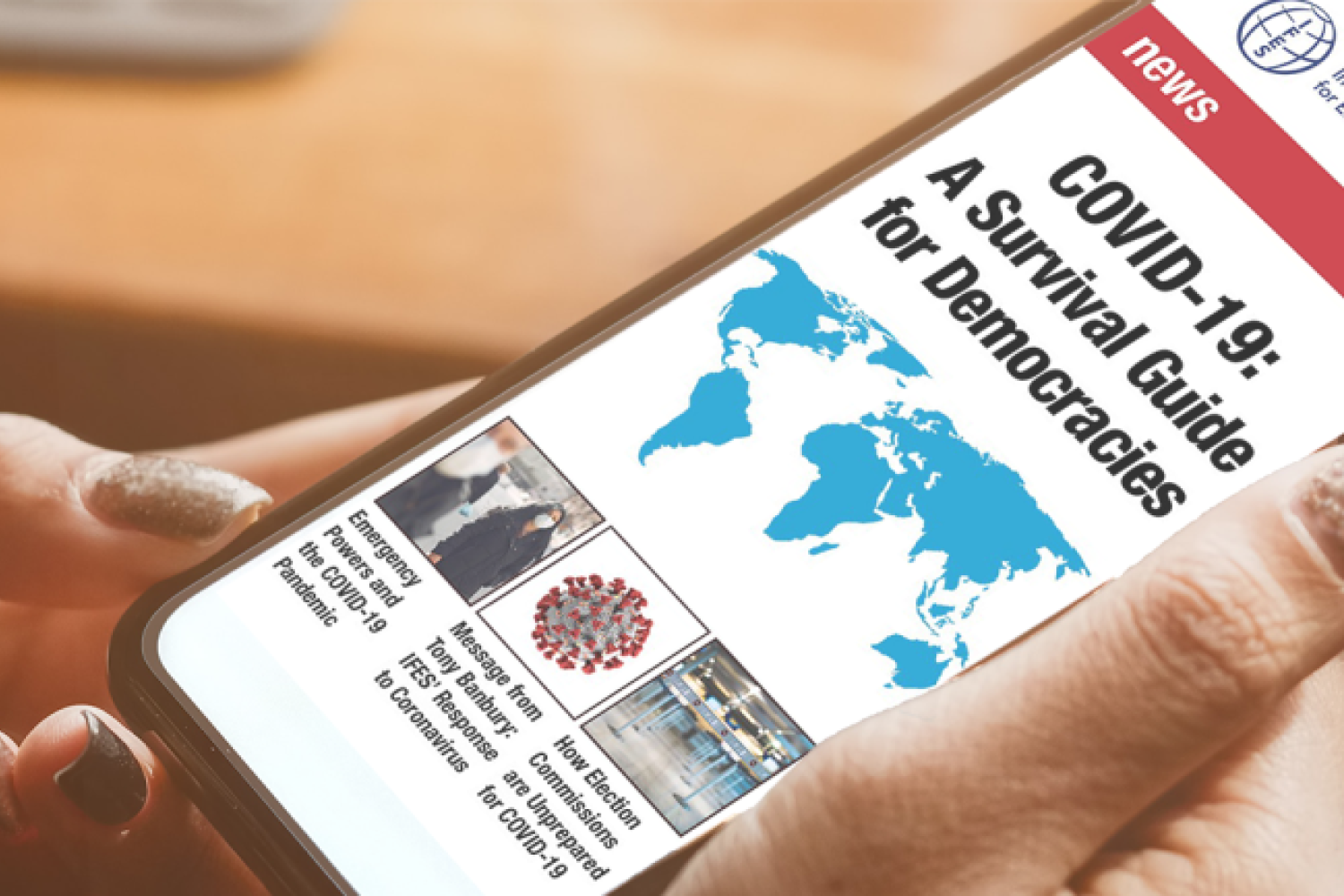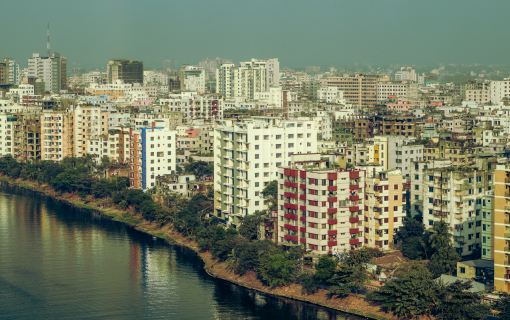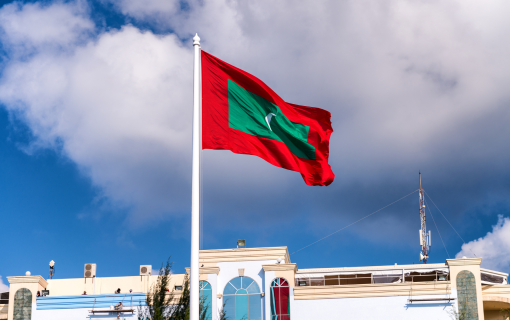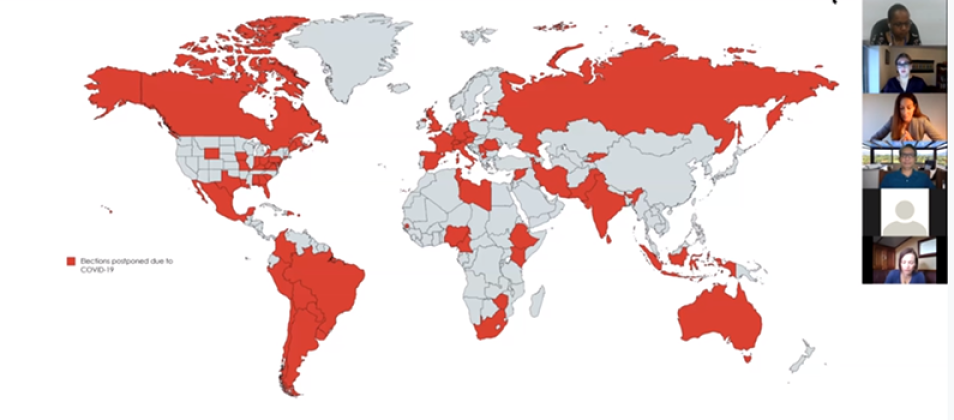
COVID-19 and Elections in the Pacific Islands
As governments around the world focus on formulating a rapid response to the COVID-19 crisis, the Pacific Islands region faces unique set of risks and challenges. Pervasive disinformation stigmatizes minority groups, service providers’ ability to respond – especially to the needs of marginalized groups – is strained and limited support to civil society and government officials make many in the Pacific highly vulnerable should the pandemic spread. Over the course of 2020 and early 2021, the Autonomous Region of Bougainville, Federated States of Micronesia, Palau, Samoa, Solomon Islands and Tonga are scheduled to hold elections that will require special considerations given the broad impact of the public health crisis. Election commissions that already have limited time and resources to prepare must acquire new supplies and incorporate new procedures, many of which may be at odds with how elections have been organized in the past.
In partnership with the Fijian Elections Office, the International Foundation for Electoral Systems (IFES) is co-hosting a webinar series to inform local election management bodies (EMBs), civil society organizations (CSOs) and other stakeholders in the Pacific region on best practices for conducting elections during the public health crisis. Moving forward with an election during this period can lead to possible risk of infection for voters and poll workers, low voter turnout and credibility issues. This series aims to provide local stakeholders with information to mitigate the potential risks involved when conducting an election during the COVID-19 pandemic.
In the first webinar, Senior Global Electoral Operations and Administration Advisor Staffan Darnolf presented his paper on Safeguarding Health and Elections. Darnolf identified the risks associated with conducting an election during a major health crisis and provided considerations for election officials to mitigate such risks. Recommendations included communication and coordination with relevant health authorities to analyze the risks and collaboratively plan and effectively implement risk-mitigation strategies. For example, minimizing person-to-person contact while in a polling station by enforcing proper social distancing, respiratory hygiene – such as best practices to prevent spread when coughing or sneezing – and the use of personal protective equipment (PPE). He also discussed how to prevent or mitigate contamination of common surfaces and objects. This could be done through the proper use of PPE, hand sanitizer and disinfectant cleaners. The session highlighted how these recommendations could be implemented throughout the full electoral cycle, from pre-election activities such as political campaigns to post-election activities like counting and result announcements.
Following the presentation, regional EMBs from the Autonomous Region of Bougainville, New Zealand and the Solomon Islands presented steps their respective countries were taking to safely execute upcoming elections. Solomon Islands Electoral Commissioner Mose Saitala added that at this time it is very difficult to acquire additional funds to execute the upcoming by-elections, let alone incorporate mitigation strategies for COVID-19, due to the stark economic growth figure of -4.9 percent for 2020. Nevertheless, the Solomon Islands Electoral Commission is working closely with the Ministry of Health to reorganize polling stations, appoint queue masters at polling locations to mitigate crowd control and movement and ensure hand sanitizer and masks are available.
“Gaps in legal frameworks present new challenges as electoral processes and emergency powers collide.” – IFES Senior Global Legal Advisor Katherine Ellena
For the second webinar, Senior Global Legal Advisor Katherine Ellena presented her paper on Legal Considerations When Delaying or Adapting Elections. While many countries have emergency laws in place, there may not be clarity in the law about how these emergency provisions interact with election laws. This lack of clarity compounds an already complex process. Throughout the presentation Ellena provided examples of key international principles, best practices and legal considerations to aid the decision-making process when considering postponing or modifying an election process. Recommendations included the importance of communicating and coordinating with all relevant stakeholders prior to making any changes. Should such changes occur, they must be done transparently, and with public outreach to inform constituents about any new processes and mitigate any deterrent effect the pandemic may have that could suppress turnout. Transparency and communication are often the last to be considered in the decision-making process, yet they are often the most important to ensure an election is fair and competitive. If a country should decide to delay or postpone an election, it is imperative to identify a revised date or timeline for the election to take place. Finally, Ellena reminded the audience of the operational impacts of delaying or modifying an election, such as additional costs, capacity to organize new elections and the need for consultation and public education.
Following both presentations, participants from across the region took part in a lively Q&A discussion. EMBs from Australia, the Autonomous Region of Bougainville, Fiji, New Zealand, the Philippines, the Solomon Islands and Timor-Leste shared election challenges their countries are facing due to the health crisis ¬– from acquiring sufficient PPE to electoral leadership’s ability to maintain independence in the decision-making process. This information-sharing session provided EMBs and other stakeholders a platform to brainstorm effective ways to safely implement upcoming elections. During the second discussion, Ellena shared that IFES was in the process of adapting past decision-making trainings to accommodate a health crisis scenario. Many EMB participants expressed interest in participating once the training session was available.
The third webinar, “Preserving Electoral Integrity During an Infodemic,” will take place on June 24, 2020, to discuss the ramifications of viral misinformation, disinformation and hate speech campaigns, all of which threaten the franchise and undermine faith in democracy and institutions.
The webinar series is made possible through the support of the United States Agency for International Development, Australian Department of Foreign Affairs and Trade and New Zealand Ministry of Foreign Affairs and Trade.
Published on June 23, 2020.




